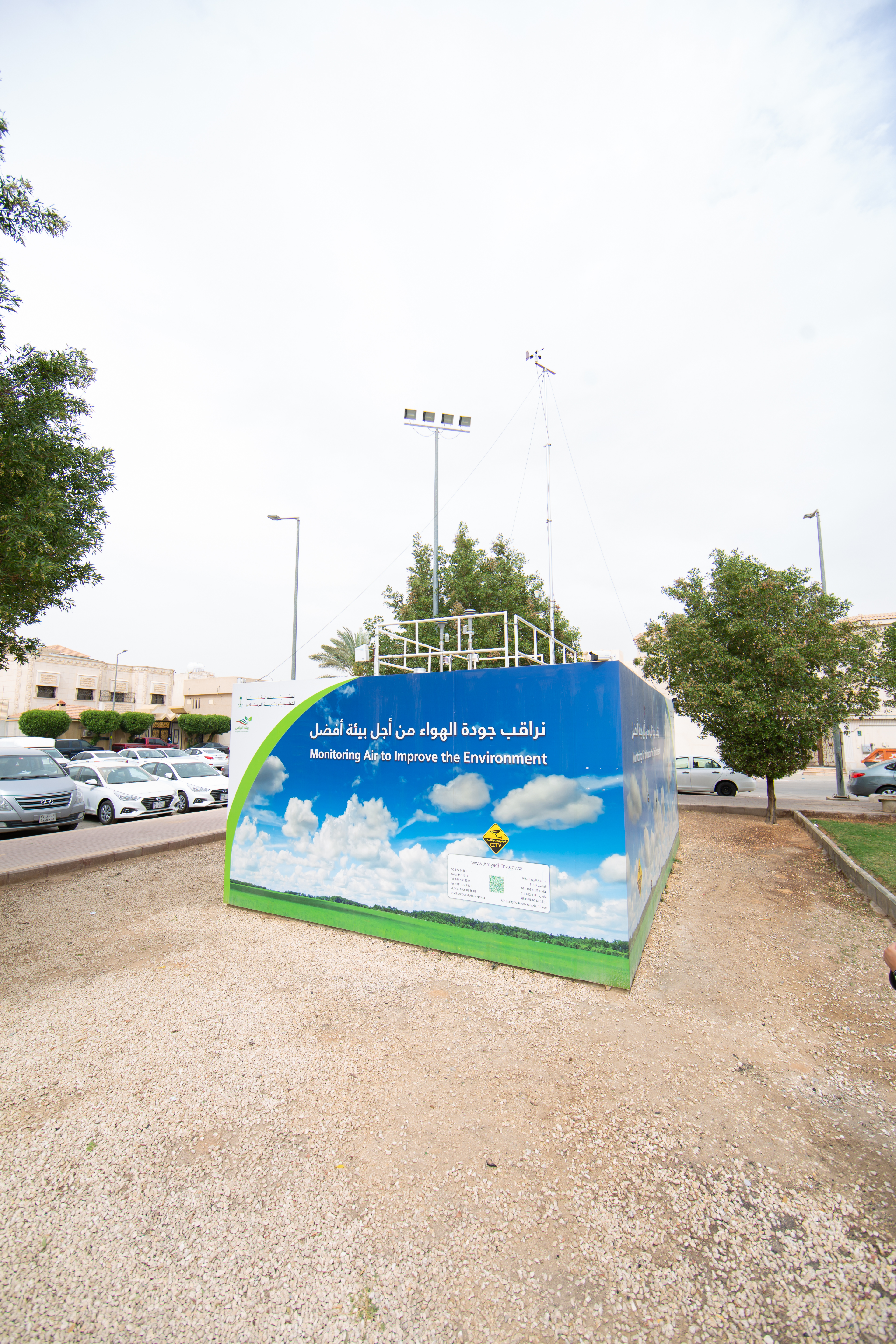NEWS AND EVENTS

Air Quality
One of the biggest challenges that faces the environment is the atmosphere’s exposure chemicals, particulate matters, or biological compounds that are harmful to the environment and living beings. This phenomena is called “air pollution”, and it affects cities, forests, and ecosystems, and it‘s a stage four of health threats to a human. Based on the numbers calculated by the World Health Organization’s data, there are 4 million early deaths annually that are confirmed to be related to air pollution, let alone being a reason behind many respiratory diseases. In reference to statistics, 80% of urban citizens are exposed to a higher rate of air pollution than allowed.
Leaning on the risks resulting from air pollutants, and the good measure that should be channeled towards appropriate decision-making on the reduction of harming effects of these pollutants, The Royal Commission for Riyadh City launched the Air Quality Management Program, whom practices’ aim is to purify the city’s air by monitoring the quality of air in urban neighborhoods, on roads and outside the urban area, hoping to reduce the effects of pollutants sources, which will help in maintaining the health of the residents of Riyadh.
There are 32 air monitoring stations, established by the Royal Commission for Riyadh City, to measure the concentration of 10 specific pollutants, such as sulfur dioxide, carbon monoxide, and volatile organic compounds, lead, etc. These stations contribute and enable the city to take initiative in the reduction of air pollution, of which are: the development of disaggregated precise indicators on air pollution, the support of scientific researches and studies on air quality, the creation of a website and an application to receive air quality updates and indicators in real time. These air quality monitoring stations have collected more than 40 million audited readings since they began operating in 2016. The lowest accuracy rate is 96.8%, while the international standard for accepting data quality is 75% or higher.
The competent bodies are analyzing data issued by the monitoring stations to study the sources of these pollutants, and work to limit their expansion rate. One of the most frequently monitored pollutants suspended particles, and due to the dry climate of Riyadh, its air is negatively affected by these particles, which are airborne.
Suspended particles sources vary, some are natural, such as sand particles of sandstorms in surrounding deserts. Other sources can be man-made, demolition, construction, excavation works, and emissions from vehicles can cotribute in the production of those pollutants.
The Royal Comission for Riyadh City has taken steps to contribute to improving air quality in the city, including:
– King Abdulaziz Project for Riyadh Public Transport, which seeks to reduce the use of cars to approximately 47%, descending the percentage of vehicle pollutants.
– The launching of the Green Riyadh project, which works to improve air quality through planting trees to purify the air and the reduction of sand particles and the absorption of harmful air pollutants.
– Launching the website and the application to show, in real time, air quality indicators in the area surrounding the user; They also provide data that can support scientific research and studies on the state of air quality.


